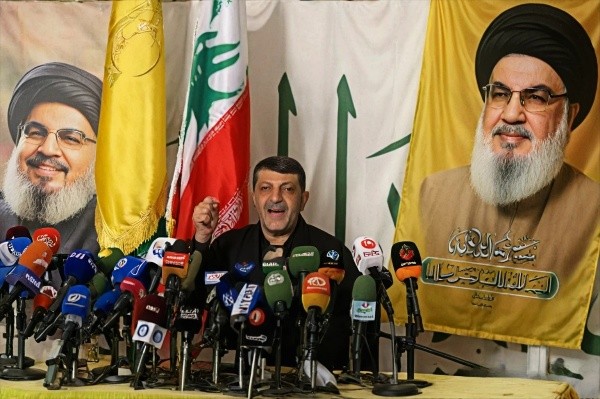Iran’s Plan to Strike Back Against the U.S.
Iran’s Military Preparations Following U.S. Attacks
Loading...

Israeli strike on a building in central Beirut in a setback to the Lebanese armed group.
Targeted Attack in Central Beirut
In a significant escalation of hostilities, an Israeli airstrike in central Beirut has resulted in the death of Mohammad Afif, the spokesman for Hezbollah. The attack occurred on Sunday in the densely populated Ras al-Nabaa district, where the building was struck without prior warning, leading to injuries for three other individuals. This area has become a refuge for many Lebanese displaced by ongoing Israeli strikes in the southern suburbs of Beirut.
Implications for Hezbollah
The assassination of Afif marks a troubling development for Hezbollah, as it not only eliminates a key figure within the organization but also signals Israel's intent to undermine the group's operational capabilities. Al Jazeera's Dorsa Jabbari noted that this strike is part of a broader Israeli strategy aimed at targeting both the military and administrative branches of Hezbollah. The goal appears to be to weaken the group's influence across various fronts—military, economic, social, and political.
Afif had previously managed Hezbollah’s Al-Manar television station and was a prominent face for the group, often addressing the media amidst the devastation caused by Israeli bombardments. Just days before his death, he asserted that Israeli forces had failed to occupy any territory in Lebanon and claimed that Hezbollah was well-equipped to sustain a prolonged conflict.
A Pattern of Assassinations
The killing of Mohammad Afif is part of a disturbing trend of targeted assassinations of high-ranking Hezbollah officials. This follows the assassination of Hezbollah's leader, Hassan Nasrallah, in a similar Israeli strike in late September. Military analyst Elijah Magnier emphasized that the elimination of Afif is a calculated move by Israel to disrupt Hezbollah's leadership structure and its ability to communicate effectively with the public and the international community.
Magnier further explained that such high-profile assassinations serve to instill fear within the organization, demonstrating that even non-military personnel are not safe from Israeli operations. This tactic could force Hezbollah officials to adopt a more visible presence, potentially compromising their operational security.
Rising Tensions and Casualties
The airstrike that killed Afif is part of a broader pattern of violence that has escalated since late September, when Israel intensified its military operations across Lebanon. In a related incident, two Lebanese soldiers were killed when the Israeli army targeted an army post in the al-Mari area of the Hasbaiyya district. These developments underscore the precarious security situation in Lebanon, where the ongoing conflict has led to significant casualties and displacement among civilians.
Conclusion
The assassination of Mohammad Afif represents a critical juncture in the ongoing conflict between Israel and Hezbollah. As tensions continue to rise, the implications of this strike extend beyond the immediate loss of a key spokesperson; it reflects a strategic effort by Israel to dismantle Hezbollah's leadership and operational capabilities. The situation remains fluid, with potential repercussions for both the Lebanese populace and the broader regional stability as the conflict unfolds.
Editor
Iran’s Military Preparations Following U.S. Attacks
Troops remain in five strategic locations, raising fears of renewed tensions and long-term occupation.
Opposition forces have taken control of the capital after a significant offensive. Here is how it unravelled.
